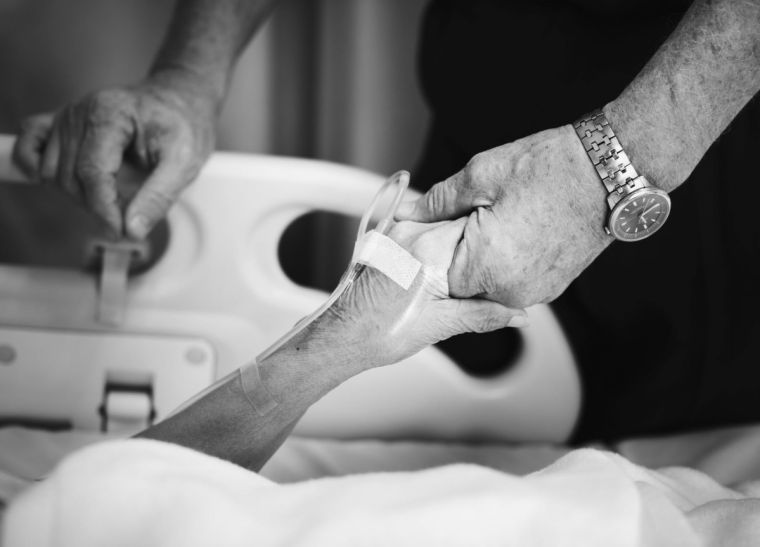Legalising assisted dying would send the message that 'some people are not worth protecting'

Changing the law to allow assisted dying runs the risk of making terminally ill and disabled people believe that their lives are worth less than others.
Writing in The Sunday Express, Care Not Killing spokesman Dr Anthony McCarthy warned that legalising assisted suicide would create a system that encouraged some people to wrongly think that they were a burden to society who should 'tidy themselves away'.
Dr McCarthy, who is also senior bioethicist at the Society for the Protection of Unborn Children, said any changes to the law would only 'send out a strong message that the lives of some people are not worth protecting'.
He further warned that permitting assisted dying may also lead to an increase in suicide more generally.
'Medicine is the art of healing. It cares for patients and does not end their lives,' he said.
'Offering death, not support, as a solution is a counsel of despair. There are more suicides of all kinds in places where assisted suicide is allowed.
'A law to allow assisted suicide would change the very nature of medicine, which would no longer be seen as about healing people, caring for the most vulnerable, and alleviating their suffering.
'We would have a system where people who no longer value their lives but see themselves as a burden would be helped to "tidy themselves away".'
The debate around assisted dying has re-surfaced after Geoffrey Whaley wrote posthumously to MPs calling for the legalisation of assisted dying after ending his life last week at the Dignitas clinic in Switzerland. He suffered from terminal motor neurone disease.
The Royal College of Physicians has also been embroiled in a row over a poll that some members believe may lead to it showing 'tacit support' for assisted suicide.
Although the RCP currently opposes assisted suicide, it announced last month that it would adopt a neutral position unless the poll resulted in a 60 per cent majority for or against.
Over 1,400 doctors have denounced the poll in an open letter organised by Dr David Randall as part of a new campaign group called Our Duty of Care.
The letter to RCP president Professor Andrew Goddard said: 'It seems perfectly clear the survey has been designed to ensure the college drops its long-standing opposition to assisted suicide and move instead to a position of so-called 'neutrality'.
'Indeed, at a recent council meeting, a new default position of neutral was adopted prior to the announcement of the new poll, without any involvement of the wider membership.
'We acknowledge members may hold different views on this sensitive issue. But by going neutral, the college is sending a clear signal of support for a law change. Given the most recent poll of members showed a majority were opposed to assisted suicide, the approach the college is taking is extraordinary.'











